Source: unite.ai Researchers from Carnegie Mellon University have demonstrated how they can build intelligent tutoring systems. These systems are effective at teaching various subjects, including algebra and grammar. The researchers used a new method that relies on artificial intelligence in order to allow a teacher to teach a computer. The wording makes this method seem Read More
Tag: researchers
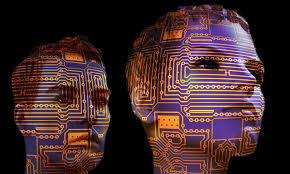
Source: outlookindia.com London, May 3 (IANS) Using Artificial Intelligence (AI), researchers have developed a quick test to identify which people with glaucoma are at risk of rapid progression to blindness. A new test can detect glaucoma progression 18 months earlier than the current gold standard method, said the study published in the journal Expert Review Read More
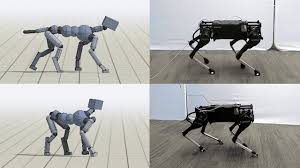
Source: techxplore.com Researchers at Google Research and the University of California, Berkeley, have recently developed an imitation learning system that could enable a variety of agile locomotion behaviors in robots. Their technique, presented in a paper pre-published on arXiv, allows robots to acquire new skills by imitating animals. “This project builds on some previous works from computer Read More
Source: venturebeat.com In a paper originally published last October and accepted to the International Conference on Learning Representations (ICLR) 2020, researchers affiliated with Google and the University College London propose an AI model that enables control of speech characteristics like pitch, emotion, and speaking rate with as little as 30 minutes of data. The work has obvious commercial Read More
Source: eurekalert.org Chinese researchers are using big data to help identify trauma patients who could experience potential adverse health events in the emergency department through the aid of a clinical decision support system. It was developed using a novel real-world evidence mining and evidence-based inference method, driven by improved information storage and electronic medical records. Read More

Source: In a recent study conducted in collaboration with Calico Life Sciences, Google researchers built a “genome-wide” machine learning model for the regulation of gene expression — the process by which information from a gene is used to create functional protein or RNA — in a species of yeast. While the work focused on yeast, it could be applicable Read More
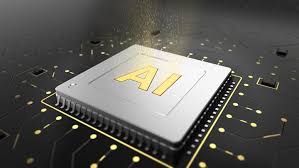
Source: militaryaerospace.com ROME, N.Y. – U.S. Air Force researchers are asking for industry help in making big improvements in small, lightweight embedded computing for artificial intelligence (AI) and machine learning (AI/ML) capabilities in an embedded computing environment. Officials of the Air Force Research Laboratory’s Information Directorate in Rome, N.Y., issued a broad agency announcement on Thursday (FA875019S7007) for Read More
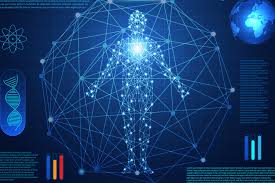
Source: analyticsinsight.net Recently, a team of researchers at MIT discovered a powerful new antibiotic using machine learning algorithms. The antibiotic is named for the AI in 2001: A Space Odyssey, halicin. It successfully wiped out numerous bacterial strains, including some of the most dangerous drug-resistant bacteria on the World Health Organization’s most wanted list. After Read More

Source: venturebeat.com A preprint study published this week by coauthors at Google Research describes Entities as Experts (EAE), a new type of machine learning model that can access memories of entities (e.g., people, places, organizations, dates, times, and figures) mentioned in a piece of sample text. They claim it outperforms two state-of-the-art models with far less Read More

Source: bestgamingpro.com Researchers from Google Mind, Intel, OpenAI, and prime analysis labs within the U.S. and Europe joined forces this week to launch what the group calls a toolbox for turning AI ethics rules into observe. The equipment for organizations creating AI fashions contains the concept of paying builders for locating bias in AI, akin Read More

Source: analyticsindiamag.com Researchers from Microsoft, Princeton University, Technion and Algorand Foundation recently introduced a new framework known as Falcon. Falcon is an end-to-end 3-party protocol that can be used for fast and secure computations of deep learning algorithms on larger networks. Today, a vast amount of private data and sensitive information is continuously being generated. Read More
Source: analyticsindiamag.com The TensorFlow team at Google recently introduced a new tool for TensorFlow Lite (TFLite) known as Model Maker. The TFLite Model Maker simplifies the process of adapting and converting a TensorFlow Neural Network model to particular input data when deploying this model for on-device ML applications. Developed by researchers and engineers from the Google Brain Read More

Source: unite.ai Researchers from the Cockrell School of Engineering at The University of Texas at Austin have discovered a new way to increase the energy efficiency of smart computers. This comes during a time when there is an increased need for energy in order to process massive amounts of data, a result of newly developed Read More

Source: sciencemag.org Artificial intelligence (AI) is evolving—literally. Researchers have created software that borrows concepts from Darwinian evolution, including “survival of the fittest,” to build AI programs that improve generation after generation without human input. The program replicated decades of AI research in a matter of days, and its designers think that one day, it could Read More

Source: venturebeat.com A team of Google researchers recently detailed a framework called SimCLR, which improves previous approaches to self-supervised learning, a family of techniques for converting an unsupervised learning problem (i.e., a problem in which AI models train on unlabeled data) into a supervised one by creating labels from unlabeled data sets. In a preprint Read More
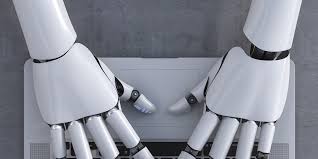
Source: venturebeat.com Carnegie Mellon, Google, and Stanford researchers write in a paper that they’ve developed a framework for using weak supervision — a form of AI training where the model learns from large amounts of limited, imprecise, or noisy data — that enables robots to efficiently explore a challenging environment. By learning to reach only areas of its surroundings Read More

Source: searchenterpriseai.techtarget.com How far are we from artificial general intelligence? And if we ever see true AGI, will it operate similar to the human brain, or could there be a better path to building intelligent machines? Since the earliest days of artificial intelligence — and computing more generally — theorists have assumed that intelligent machines would think in Read More

Source: healthitanalytics.com April 06, 2020 – ONC is collaborating with NIH’s National Institute of Diabetes and Digestive and Kidney Diseases (NIDDK) to apply machine learning and artificial intelligence to patient-centered outcomes research (PCOR) on chronic kidney disease. Through a project called Training Data for Machine Learning to Enhance PCOR Data Infrastructure (the PCOR Machine Learning Project), ONC and NIDDK are seeking Read More

Source: thebulwark.com anaging uncertainty and acquiring data are hard even in the best of circumstances. In the middle of a global pandemic? Good luck. The world is getting a crash course in the uncertainty of medicine, a discipline that is informed by science and strives to be scientific, but which operates far more often than Read More
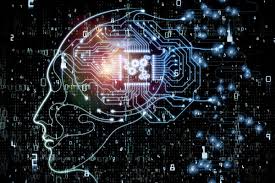
Source: Back in 2008, theoretical physicist Stephen Hawking used a speech synthesizer program on an Apple II computer to “talk.” He had to use hand controls to work the system, which became problematic as his case of Lou Gehrig’s disease progressed. When he upgraded to a new device, called a “cheek switch,” it detected when Hawking tensed Read More
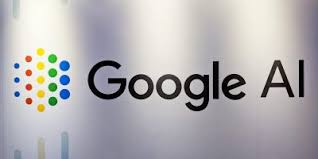
Source: venturebeat.com Google researchers developed an AI system that learns from the motions of animals to give robots greater agility, reveals a preprint paper and blog post published this week. The coauthors believe their approach could bolster the development of robots that can complete tasks in the real world, for instance transporting materials between multilevel warehouses and fulfillment centers. The teams’ Read More

Source: theburnin.com The Massachusetts Institute of Technology (MIT) recently posted a blog highlighting how Google is using an artificial intelligence (AI) program to optimize the design of its AI chips. The Big Tech firm is using an innovative type of algorithm to improve its chip floor planning, the process of laying out components on a module. So Read More

Source: techxplore.com Learning how people interact with artificial intelligence-enabled machines—and using that knowledge to improve people’s trust in AI—may help us live in harmony with the ever-increasing number of robots, chatbots and other smart machines in our midst, according to a Penn State researcher. In a paper published in the current issue of the Journal Read More

Source: venturebeat.com In a preprint paper published this week by DeepMind, Google parent company Alphabet’s U.K.-based research division, a team of scientists describe Agent57, which they say is the first system that outperforms humans on all 57 Atari games in the Arcade Learning Environment data set. Assuming the claim holds water, Agent57 could lay the groundwork Read More
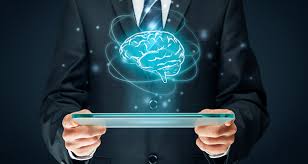
Source: minnlawyer.com BALTIMORE — Can a computer review a contract, conduct legal research or even write a brief? Legal services companies advertise a variety of programs marketed as artificial intelligence to make attorneys’ work easier and faster, but the boom in so-called AI has not been accompanied by robust ethics considerations. The American Bar Association Read More

Source: phys.org Researchers from Tokyo Metropolitan University have used machine learning to analyze spin models, which are used in physics to study phase transitions. Previous work showed that an image/handwriting classification model could be applied to distinguish states in the simplest models. The team showed the approach is applicable to more complex models and found Read More
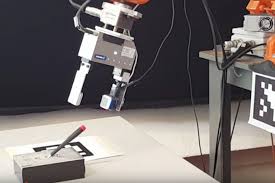
Source: semiconductorsindustry.com Researchers from ETH Zürich have declared that they’ve leveraged machine learning to build a low-cost tactile sensor. The sensor can measure force distribution in high resolution and with high accuracy. These features allow the robot arm to hold sensitive, fragile objects with more skill. Enabling robotic grippers to feel is essential to making them Read More
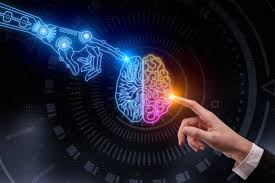
Source: gadgets.ndtv.com On December 30, researchers using artificial intelligence systems to comb through media and social platforms detected the spread of an unusual flu-like illness in Wuhan, China. It would be days before the World Health Organization released a risk assessment and a full month before the UN agency declared a global public health emergency Read More

Source: eponline.com Data has quickly become one of the most valuable resources for any organization. New tools and data-collection schemes have made it possible to gather and analyze massive sets of data—dubbed “big data.” These data sets allow us to discover patterns and relationships that we couldn’t have found with traditional approaches. One area being Read More
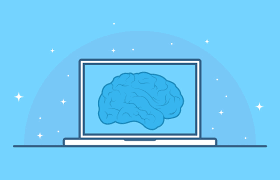
Source: siliconangle.com Researchers at Google have open-sourced a new framework that can scale up artificial intelligence model training across thousands of machines. It’s a promising development because it should enable AI algorithm training to be performed at millions of frames per second while reducing the costs of doing so by as much as 80%, Google noted in Read More
